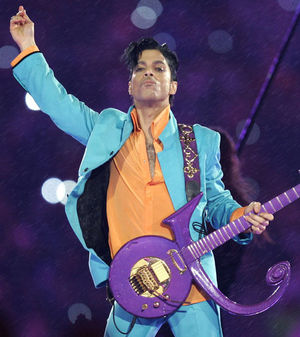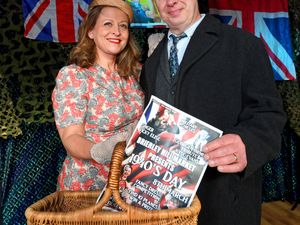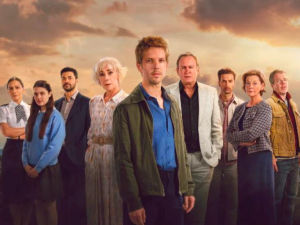Andy Richardson: For Bev, there’s only one Prince charming
She’s sung with soul superstar Lionel Richie, original Memphis soul legend Sam Moore, of Sam and Dave, and the remarkably tuneful Oscar-winning actor Kevin Spacey.

Wolverhampton powerhouse Beverley Knight has duetted with Gregory Porter, mixed it with Jamie Cullum and hung out with rock icon Robert Plant at the Molineux.
Yet there’s one figure who stands head and shoulders above the rest – in a manner of speaking – and that’s Prince. He asked her to open for him at the O2, encouraged her to do a number of after-shows with another late singer, Amy Winehouse, then flew her out to LA so that she could sing with him.
Her abiding memories of the purple one are his talent and his sense of humour. For though he cultivated an air of mystery, those fortunate enough to get up close found a man who couldn’t have been more different than his public image.
Prince gave few interviews though I was fortunate enough to be granted one at a time when he was describing himself as a slave. And just as Beverley found him more impressive and interesting than his public image, so I discovered something equally unexpected – Prince was normal.
During a revealing interview, the multi-instrumentalist, philanthropist, dancer, singer and producer was as unstarry, unaffected, unegotistical and unshowy as a barman at Wetherspoon’s – though he was decidedly cooler.
Normal isn’t the same as ordinary, of course, and Prince was far from the latter. He was extraordinary: a burning, pyrotechnic musician whose genius helped him sell 100 million records worldwide and win seven Grammy Awards and an Oscar for Purple Rain. Yet the most remarkable thing about him was his normality. He was wearing shades during the interview, which some may have interpreted as affectation. I asked him to remove them and he did.
“I was out partying last night,” he said, showing me just how red his eyes were. “That’s why I’m wearing these.” And he popped them back on to shield himself from the bright lights of his dressing room.
At the time he was embroiled in a spat with his record label, Warners, who owned the master tapes to 20 albums preceding Emancipation. Prince felt ripped off. He was angry that he didn’t own his own work, that a giant, multi-national corporation excised too much control over his life and diminished his creative autonomy.
And so he did what any disaffected worker might do: found a way to protest. While cleaners might not scrub the cooker quite as hard, or while office workers might surreptitiously reduce their productivity, Prince was more direct. He changed his name and became The Artist Formerly Known As Prince.
And when he spoke about his struggle to earn a fairer share of the profits from his own work, he was just as animated as a teacher in a staff room who’s been told he won’t be getting a pay rise, or as a chief executive of a company who’s been told to fire five staff.
Prince was acutely self-aware. And when we spoke about his public image, he was perfectly in tune with the outside world. He was conversant with the parodies and the clichés, with the opinions of the ill-informed and presumptuous. And rather than try to quell their misinformation he sat back and enjoyed it, watching rumours grow like vegetables in a seed bed. He wasn’t interested in what people thought of him, he was interested in what he was able to do. And besides, if the press was expending energy speculating about him, the publicity would only have one effect – to help him sell more records.
He addressed the issue head-on: “I want people to think I’m insane.”
He was utterly in control, poised, savvy and the coolest cat in town.
In a recent interview, Beverley said she still hadn’t come to terms with the death of her one-time musical collaborator and quasi-mentor. And perhaps that’s no surprise. Totemic figures like Prince and the late David Bowie light up the world in the way no others can. The then-President of the USA, Barack Obama, used one of Prince’s own quotes to reflect on his passing.
“He was a virtuoso instrumentalist, a brilliant bandleader, and an electrifying performer. ‘A strong spirit transcends rules,’ Prince once said – and nobody’s spirit was stronger, bolder, or more creative.”
To his fans, he was the man who soundtracked a generation, whose music illuminated their lives and created a world of excitement and adventure. And to such performers as Beverley Knight, he was the man who unlocked the doors, who created a world in which they could live, who showed them how to make their dreams a reality.
Prince remains one of the greatest rock stars that ever bestrode the planet. Little wonder Beverley still considers him the nonpareil.




